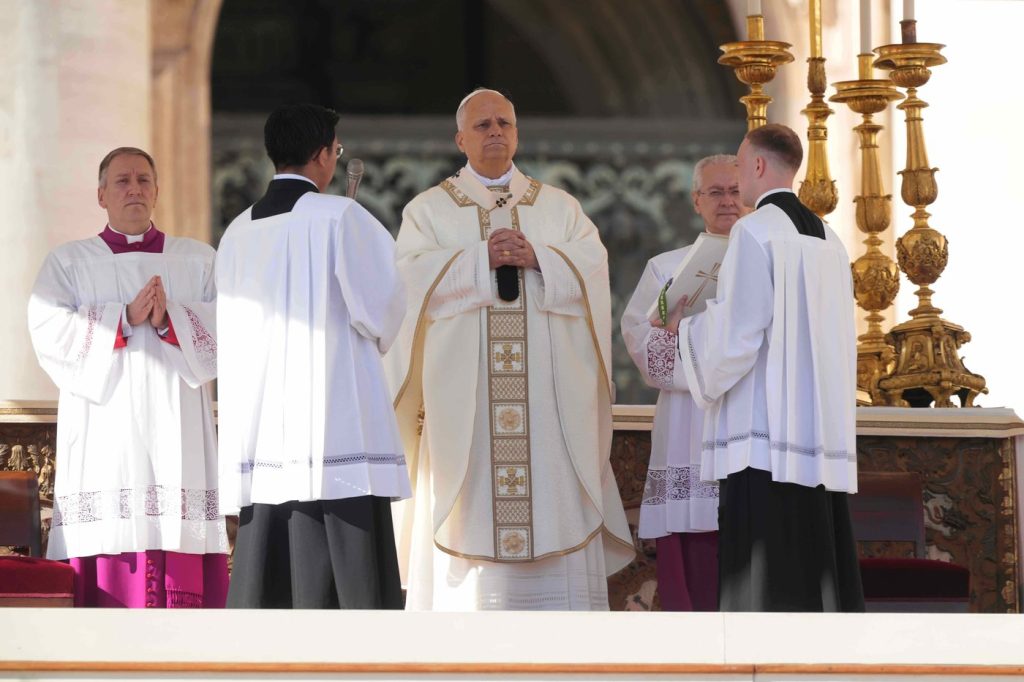VATICAN CITY (AP) — Pope Leo XIV has honored St. John Henry Newman, a notable 19th-century British theologian and convert, by declaring him a doctor of the church. This distinction places Newman among a select group of only 37 individuals who have received the title in the history of the Catholic Church, joining the ranks of revered figures such as St. Augustine, St. Therese of Lisieux, and St. John of the Cross.
The title of doctor of the church acknowledges Newman’s significant contributions to the understanding of Christian faith, highlighting his universal appeal that resonates within both Anglican and Catholic communities. Recognized for his influential writings and sermons focusing on the development of doctrine, truth, and the nature of a university, Newman is celebrated for his courageous decision to convert to Catholicism in 1845, a move that came with considerable personal sacrifice.
Pope Leo XIV conferred this honor on Newman during a special Holy Year Mass for Catholic educators and students on Saturday. In addition to designating Newman as a co-patron of Catholic education alongside St. Thomas Aquinas, the ceremony reflected on the historical significance of Newman's role within the church; it was Pope Leo XIII, also named Leo, who elevated Newman to the rank of cardinal following his conversion.
The selection of Newman as a model for educators underscores Pope Leo XIV’s commitment to Catholic education, particularly as he emphasizes the ethical implications of artificial intelligence for future generations. In a recent document, Pope Leo called for Catholic schools to foster spiritual growth and community, emphasizing the importance of maintaining human dignity in the face of advancing technology.
The Catholic Church plays a major role in global education, operating over 225,000 primary and secondary schools and enrolling approximately 2.5 million students at Catholic universities worldwide, according to Vatican statistics. Pope Leo XIV’s educational background includes his upbringing by the Augustinians, where he taught mathematics and physics, highlighting the order's emphasis on St. Augustine's quest for truth and the motivational phrase "Tolle, lege" (meaning "Take up and read").
Rev. George Bowen, responsible for overseeing Newman's canonization and designation as a doctor, remarked that Newman faced similar challenges to those of today’s information age, with a rise in the availability of cheap periodicals and increasing literacy rates. Newman advocated for a holistic liberal education that incorporated Catholic theology while encouraging interactive learning between students and teachers in the pursuit of truth and knowledge.
Born in 1801 in London to an Anglican family and ordained as an Anglican priest in 1825, Newman later became instrumental in the Oxford Movement, a response to the rise of religious liberalism within English universities. His conversion to Catholicism in 1845 resulted in the loss of friends, his position, and estrangement from family, revealing his profound commitment to seeking the truth within the Catholic faith.
Despite the personal costs of his conversion, Newman remains a cherished figure within the Church of England, exemplified by the singing of his hymns in the Sistine Chapel during a recent ecumenical service led by King Charles III alongside Pope Leo XIV. This indicates his lasting impact across denominational boundaries. Additionally, significant Anglican leaders have supported his recognition as a doctor of the church, evidenced by the participation of the Anglican Archbishop of York at the recent ceremony.
Bowen emphasized that Newman’s faith, rooted in his Anglican upbringing, continues to make him a pivotal ecumenical figure today.










